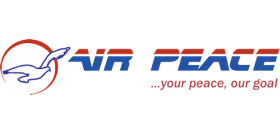 Air Peace’s Dry-Lease Milestone Signals New Era of Cost Efficiency and Global Trust for Nigerian Avi
Air Peace’s Dry-Lease Milestone Signals New Era of Cost Efficiency and Global Trust for Nigerian Avi
The arrival of a dry-leased Boeing 737-700 NG by Air Peace marks a transformative moment for Nigeria’s aviation sector, ushering in a wave of optimism and strategic advantage for the country’s airlines. This development, celebrated by the Minister of Aviation and Aerospace Development, Festus Keyamo, is being hailed as a “game-changer” that promises to slash operating costs and reduce the persistent drain on foreign exchange that has long hampered the industry’s competitiveness.
For over a decade, Nigerian carriers have been largely reliant on wet lease arrangements, which require airlines to pay for not only the aircraft but also foreign crew, maintenance, and insurance—costs typically denominated in hard currency. This model has placed a heavy financial burden on local operators, often costing up to three times more than dry leases and exacerbating the outflow of foreign exchange from the country. The shift to a dry lease, where only the aircraft is provided and all operational responsibilities rest with the local airline, signals a new level of trust in the technical and managerial capabilities of Nigerian carriers.
Minister Keyamo, speaking at the Lagos reception for the newly arrived aircraft, emphasized that this milestone is a clear vote of confidence in Nigeria’s aviation system. “It shows that international lessors now believe in Nigerian operators and the integrity of our regulatory framework,” he stated. The Minister credited this achievement to the government’s recent reforms, particularly Nigeria’s adherence to the Cape Town Convention, which protects the interests of lessors and investors, and to the strong financial record of Air Peace. These factors have helped restore global trust in Nigerian aviation, paving the way for more favorable leasing terms and greater operational independence for local airlines.
The dry lease was facilitated by global leasing giant AerCap Holdings, with Air Peace becoming the first Nigerian airline in over ten years to benefit from such an arrangement. This breakthrough is expected to set a precedent, encouraging other domestic carriers to pursue similar deals and thereby modernize their fleets more cost-effectively. The Minister highlighted that lessors were particularly impressed by Air Peace’s transparency and debt-free profile, which played a crucial role in securing the dry lease approval.
Industry observers note that this shift will have far-reaching implications for Nigeria’s aviation landscape. By reducing reliance on expensive wet leases, airlines can now allocate more resources toward fleet expansion, route development, and service improvements. The cost savings from dry leasing are expected to translate into lower airfares for passengers and improved profitability for operators, making Nigerian airlines more competitive both regionally and internationally .
Air Peace’s Chairman, Dr. Allen Ifechukwu Onyema, expressed deep gratitude to all partners and the Nigerian government for creating an enabling environment that made the dry lease possible. He reaffirmed the airline’s commitment to safety, integrity, and national representation, emphasizing that Air Peace remains focused on expanding its fleet and network to enhance connectivity and economic growth across Africa.
The arrival of the dry-leased Boeing 737-700 NG is not just a technical upgrade; it is a symbol of Nigeria’s renewed standing in the global aviation community. The move is expected to reduce insurance costs, lower operational expenses, and ultimately benefit the traveling public through more affordable and reliable air services. The government’s ongoing reforms, including plans to rebuild Lagos International Airport and establish a Nigerian Aircraft Leasing Company, are further evidence of a strategic push to modernize the sector and position Nigerian airlines for greater success.
International partners have also recognized the significance of this achievement. The Ambassador of Ireland to Nigeria, Peter Ryan, described the Nigeria–Ireland aviation partnership as a “mutually beneficial bridge for shared prosperity,” highlighting the collaborative spirit that underpins this new era of aviation transformation.
With Air Peace leading the way, other Nigerian airlines are expected to follow suit, leveraging the improved regulatory environment and growing confidence among international lessors. This trend is likely to accelerate the modernization of Nigeria’s aviation fleet, enhance operational efficiency, and foster a more competitive market environment. The Minister’s call for local airlines to acquire more wide-body aircraft underscores the ambition to see Nigerian carriers compete effectively on the international stage.
For Africa’s broader aviation industry, Nigeria’s breakthrough serves as a powerful example of how targeted reforms, financial discipline, and strategic partnerships can unlock new opportunities and drive sustainable growth. As more airlines embrace dry leasing and other innovative financing models, the continent’s aviation sector is poised for a period of renewed expansion, improved connectivity, and greater economic impact.
This milestone is more than a technical achievement—it is a catalyst for transformation, signaling that Nigerian airlines are ready to stand shoulder to shoulder with their global counterparts. The future of African aviation looks brighter as local carriers gain the tools and confidence needed to chart their own course in the competitive world of international air travel.
